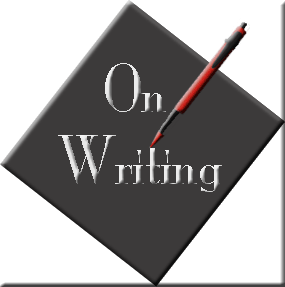WHITE OUT: A Writer’s Nightmare
WARNING: This is a no-edit zone…
Every writer goes through difficult times in life and naturally that carries over into the writing. But what is really going on when life is good—as good as real life gets—and the writing just isn’t there? No matter how long we stare at the screen, work on the characters, plot, settings, the story just won’t come?
It happens. When it does, there’s good news and bad news.
The good news is it doesn’t just happen to you. Most, if not all, writers experience “white out” at some time during their careers. There’s nothing outwardly to explain it. Writers just can’t seem to get words down on the page.
Unfortunately, that’s also the bad news. If we knew what was wrong, we’d fix it—or at least have a clue how to try to fix the problem. It’s the not being able to peg something specific that has us floundering. And—there’s no gentle way to say it—floundering is tough.
So if nothing is wrong, and we can’t peg the problem, then where do we look for solutions?
Consider for a moment that writers are creative people. Creative people determine what they think about things by weaving scenarios in their mind, looking beyond the obvious and into the subtle. Creative people express and emote.
White out is the absence of creativity and expression and emotion—all or some combination thereof, which means the writer, for whatever reason, has shut down emotion and expressing it.
The reasons are as varied as writers. Perhaps the writer has suffered overload—been through too much emotionally or feels overwhelmed by events and situations out of his/her control and has withdrawn to shield or to heal. (Think of news junkies, which most writers are. You listen to it practically non-stop and you get so weary of the spin, the bias, the onslaught of new crises everyday, and you hit max overload and shut off the news. It isn’t that you don’t care or uninterested, it’s that you’ve had it and need some distance for balance.)
Perhaps the writer has emptied his/her creative well and has been so immersed in meeting deadlines or obligations that s/he hasn’t had the time or energy to refill the well. Depending on what s/he writes, that might be researching, reading, or just engaging in the pleasantries in life. It’s hard to write about beauty and the good in people if you stay focused on the nasty, ugly, and bad in them. Now and then you have to back off and experience those things. Again, balance, though a different type.
Those are just two examples but there are many. The key factor for the writer is to distance him or herself enough so that s/he can decipher the root cause of the problem.
One of the best cures for white out is to play. By play, I mean play. J Go do something fun. Do something totally unrelated to writing. In freeing your mind, you give your subconscious time to slot everything you’ve dumped into it and to make your conscious mind aware of the logic gaps or missing puzzle parts.
Once you know what’s lacking, then you do the work necessary to fill those gaps and find those missing pieces.
Where do you look for them? It depends on what’s missing. If it’s conflict, do some research. Visit some sites where people are chatting on the subject. You’ll get both sides and more conflict than you’ll ever use in the book. Read articles by those who are pro and con. Seek some unrelated but relatable something that you can use as a mirror or echo to reflect what you need addressed.
But play first. I’m giving you a license because until you give your mind time to do its job and slot all you’ve put into it, you’re not in a position to get out of it what you need to add color and texture and ink to that white out.
Consider this play occupational therapy, because in a very real sense that’s exactly what it is.
Hope this helps!
Blessings,
Vicki
© 2012, Vicki Hinze





